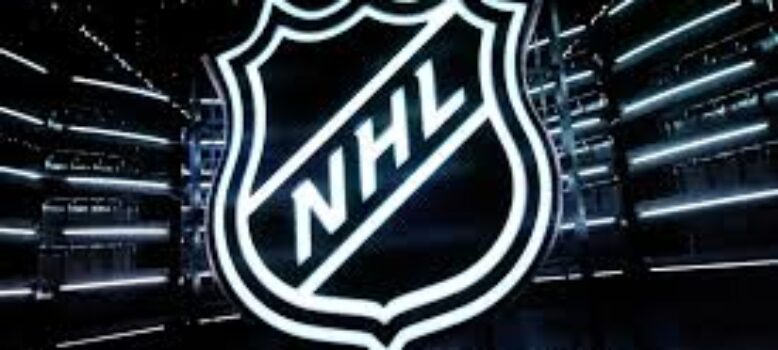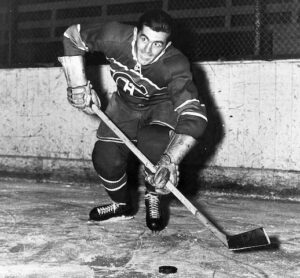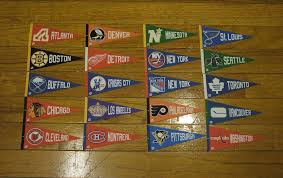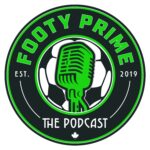

The success the NHL has had with the latest expansion franchises in Nevada and Washington state has proven that there is a market for the NHL brand, and they are ready to cash in. The NHL currently has 32 franchises, and there seems to be a good balance in the schedules, as well as the parity of the on-ice product. Some would argue expansion dilutes the quality of the NHL’s entertainment value and it just might for a very short time.
In the long run, however, it only helps to improve it. Several of the league’s stars come from some of the untraditional markets they expanded into in the past. Without the arrival of teams like the then Pheonix (now Arizona) Coyotes, there likely would be no Auston Matthews who fell in love with the game thanks to his attendance at Coyotes games and developing in local hockey programs created by the franchise. Ready or not, the NHL is expanding.
The “Original” Expansion Era
During the 1930’s the NHL had as many as nine franchises. But the Great Depression’s economic impacts meant that some franchises did not survive, and the league itself was near collapse. But it limped on, and then from 1942 to 1967, the NHL lived through the era known as “the Original Six” era. Over this time, the NHL consisted of six teams, clustered mainly in the east: Montreal Canadiens, Toronto Maple Leafs, Boston Bruins, Chicago Blackhawks, Detroit Red Wings and New York Rangers.

By 1967, the NHL saw a need to expand. It was partially due to economic reasons, so that they can increase revenues, but more to proactively block the upstart World Hockey Association (WHA) who were beginning to search for cities to house their first franchises. For the first time since the Western Canada Hockey League (WCHL) in 1925, the NHL had a legitimate challenger to hockey dominance in North America. So the NHL chose to expand in the summer of 1967, the last time that Toronto had won the Stanley Cup, to 12 teams. This doubled the size of the league, making it the biggest single-year expansion in any major professional sport. The six teams added in 1967 were:
California Seals (merged with the North Stars in 1978, Now the Dallas Stars)
Los Angeles Kings
Minnesota North Stars (moved to Dallas)
Philadelphia Flyers
Pittsburg Penguins
St.Louis Blues

Since that time, the NHL continued expanding, again, in direct competition with the WHA. Adding teams in 1970, 1972, 1974, 1978 and then, in 1979, they finally won their battle with the WHA, who folded operations, but only after the NHL agreed to incorporate the four top teams of the upstart league. It was the status quo for over a decade, until the Kings’ Wayne Gretzky era and the Disney movie “Mighty Ducks” release helped to popularize hockey across the USA, adding eight more teams by the year 2000.
But then in 2016, the NHL expanded once again, adding the Vegas Golden Knights and then the Seattle Kraken in 2022. It was this round that changed everything for those behind the scenes. These cities proved there is a market for hockey everywhere in North America, but more importantly to those who hold the purse strings for the league, they meant incredible financial windfalls. In 2000, the expansion fee for the new franchises was $80 million, to be shared equally among all the ownership groups. In 2016, that fee rose to $500 million for Vegas, and in 2022, $650 million for Seattle. That is an 800% increase, and it is also money that is not shared with the NHL PA as part of Hockey Related Revenue (HRR), meaning it is a major cash influx for the owners only. So, it is no surprise that there is interest in adding more teams.
Expansion Means Money
The NHL does have options for expansion, even outside of North America. There are some that dream of a global NHL that would include teams across the globe, such as Helsinki (Finland), Goteborg (Sweden), Prague (Czechia), and even Mexico City (Mexico). For now, however, the focus remains on the U.S. While Quebec City is seen as an ideal location, it is still a small market and its best hope for the NHL’s return to that city may be via relocation. For now, the NHL seems content to leave Canada with only seven franchises, despite the obvious hunger for more from that nations’ fan base.
Potential owners are watching NHL franchise valuations skyrocket. The financials of these franchises grow, but that is also fed by the new expansion draft rules that make the new franchises competitive immediately upon entering the league. The Golden Knights, who made the Stanley Cup Final in their first year of existence have been contenders every year and are now crowned as defending Cup Champions in only the sixth year in operation. The Kraken reached the playoffs in their second year and upset the powerhouse Colorado Avalanche. It’s no wonder that ownership groups are clamoring to join the league.
Go West Young Man
“Go west, young man, and grow up with the country” is one of the catch phrases that defines the era of America’s illusion of Manifest Destiny. The NHL’s version is built on the same desire, money. But it also provides hockey fans in underserved areas an outlet to enjoy their favorite passtime. In this case, the NHL sees the Western half of the continent underserved, and ripe with large markets that can provide not only a windfall in expansion fees, but larger Television and streaming contracts that help the overall league bottom line, something the NHL Players Association (NHLPA) is in full support of as they are the beneficiaries of 55% of all HRR< but also of added jobs as each new franchise equals 23 more NHL roster spots, not to mention the additional minor league affiliates.
With this mindset, the recent announcement by the Smith Entertainment Group (SEG) out of Salt Lake City, Utah is an indication that expansion is on the horizon. The Smith group has had conversations with league officials for the last few months and with the announcement, have accelerated the process. The Salt Lake bid has built momentum behind the scenes since 2022, and this announcement is evidence that it’s moving into a formal process.

The Smith Entertainment Group said in a news release it would use the Jazz’s arena as an interim home for an NHL franchise. SEG CEO Ryan Smith said the company is “100% focused on making this happen as soon as possible”. It’s no accident that Smith’s release indicates his group has an “immediate ability” to bring a team into the market, with the current Delta Center as an interim home, before a new rink is built for the 2034 Olympics.
There is only one professional sports team in the state, the NBA’s Utah Jazz, who are owned by the SEG. The next closest NHL markets are Colorado (Denver) and Las Vegas, who are over 400 to 500 miles away. That leaves a wide-open market in Utah of over 3.3 million people that won’t be distracted by any other NFL or MLB team either. It is an underserved area. But this would place a 17th team in the Western Conference and leave the Eastern Conference at 16 teams. The NHL hates imbalance in its league, meaning there like would be an expansion twin.
This is where Quebec City can take advantage of the imbalance in the NHL schedule. Quebec City is ready for the NHL. They have a state-of-the-art arena in the Centre Videotron, and a fan base desperate for the return of the “Nordiques”. There is also a billionaire in PK Peladeau willing to pay the expansion fees to bring back the franchise that left for Colorado in 1995. While there is no desire from the NHL currently to return to the city, if the Arizona Coyotes are unable to secure a home, something they have been desperately trying to secure for several years, it may force their ownership group to seek relocation. While a relocation fee is likely far less than an expansion fee, it does provide current NHL owners with another windfall, albeit smaller.
Coyotes' Social Media Team Trolls their Own Fans – Crier Media https://t.co/uYWGw5zgoP
— Crier Media (@thecriermedia) May 20, 2023
Quebec City could get a team by relocation, but what is far more likely at this time would be an NHL return to Atlanta via relocation or expansion.
**Keep an Eye 👁️ On**
Per my discussions with sources, here are 3 Questions I asked re The Gathering at South Forsyth Project in Georgia ;
#3 Tho 👀. @espn @NHL @NHLNetwork @TSNHockey @DKSportsbook #HockeyTwitter pic.twitter.com/0viVwGZfkV— Kevin Weekes (@KevinWeekes) April 17, 2023
No matter the landing spot of the Coyotes, there would still be an imbalance in the schedule, making it hard to envision a 33 team NHL. So that opens the door for Utah’s expansion twin to be from the West as well. Another market of interest that has the backing of deep pocketed investors is Houston, Texas. Billionaire Tilman Feritta, owner of the NBA’s Houston Rockets, has commented in the past that he would like to bring an NHL team into the city. Houston has a history of professional hockey, as the former home to WHA Houston Aeros, as well as various minor league franchises between the 1940’s to 2013. There is also a natural divisional rivalry for Houston with the Dallas Stars in the Central Division.
With the Salt Lake group’s announcement, it is obvious that cities are going to be aggressively wooing the NHL. With the obvious financial incentives and health of the franchises overall, it makes too much sense to entertain the idea of expansion. Growing the professional game means more NHL clubs, which in turn helps give birth to the grassroots programs that feed the professional game. Which in turn adds more star players, that generates more interest in the game, that allows for further expansion and so on and so on. Ready or not, NHL expansion is coming.









